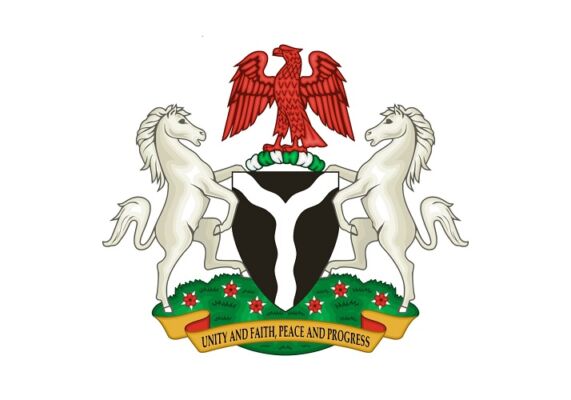- Government Organisation
- Abuja, Federal Capital Territory, Nigeria

National Frequency Management Council
About Us
The National Frequency Management Council (NFMC) is an organization typically found in countries that regulate the allocation, management, and use of radio frequencies for telecommunications, broadcasting, and other wireless communications. The specific functions and roles of the NFMC may vary depending on the country, but the general responsibilities of such councils include:
Key Functions of the National Frequency Management Council:
Frequency Allocation and Planning:
NFMCs are responsible for ensuring that the radio frequency spectrum is used efficiently and that different services (such as telecommunications, broadcasting, and military use) are allocated specific frequency bands to avoid interference.
They plan and manage the allocation of frequencies among various users to prevent overcrowding and interference between different services.
Regulatory Oversight:
The NFMC works in coordination with national regulatory authorities to set policies, frameworks, and regulations governing the use of radio frequencies. This includes ensuring compliance with international agreements like those made by the International Telecommunication Union (ITU).
Conflict Resolution:
- They help resolve disputes between different users of the radio spectrum, particularly when there is interference between services or operators.
Monitoring and Enforcement:
- The NFMC often oversees the monitoring of frequency usage to ensure that licenses and permissions are followed and that illegal or unlicensed transmissions are avoided.
Coordination with International Bodies:
- Since radio frequencies are shared globally, the NFMC typically collaborates with international bodies such as the ITU to align national policies with global standards, ensuring that the country adheres to international agreements and avoids frequency conflicts with neighboring countries.
Research and Development:
- The council may also engage in research to explore new technologies and methodologies for better frequency management, such as innovations in spectrum sharing or the use of new frequency bands for emerging technologies like 5G.
Historical Background
The National Frequency Management Council (NFMC) is a body established to oversee the allocation and management of the radio frequency spectrum within a country. It is typically formed to address the growing demand for wireless communication services, which require efficient and fair distribution of limited spectrum resources. The historical background of the NFMC varies depending on the country in which it operates, but the underlying rationale for its creation is generally consistent across different regions: the increasing need for regulation in the face of rapidly expanding telecommunications and broadcasting technologies.
The importance of managing the radio frequency spectrum became evident as the demand for various communication technologies, including radio, television, and later mobile telecommunications, skyrocketed. Early in the 20th century, radio broadcasting began, followed by television and other wireless communication systems. These technologies quickly realized the potential for interference if frequencies were not carefully managed. Consequently, countries began forming regulatory bodies to allocate and assign frequency bands to different services, ensuring that they did not conflict with each other.
Globally, the International Telecommunication Union (ITU), a specialized agency of the United Nations, played a pivotal role in setting international standards and promoting cooperation between countries regarding frequency allocation. This laid the groundwork for national bodies to assume responsibility for managing their domestic spectrum.
In countries like Pakistan, the National Frequency Management Council (NFMC) was established to address the growing complexity of spectrum usage in the late 20th and early 21st centuries. As the use of mobile phones, internet services, and other wireless technologies rapidly expanded, it became crucial to organize and oversee the use of radio frequencies. The NFMC helped ensure the efficient use of this valuable resource, coordinating between different sectors such as telecommunications, defense, and broadcasting. The formation of such councils was also in response to the increased global emphasis on managing frequencies more effectively in light of new technologies like 4G, 5G, and beyond.
Over time, the NFMCs in various countries, including Pakistan, developed into formal entities that were tasked with not only frequency allocation but also the enforcement of policies, the resolution of disputes, and the monitoring of spectrum usage. They played a crucial role in facilitating technological advancements and ensuring that spectrum was allocated in a way that supported economic growth and innovation while avoiding harmful interference.
In the modern era, the work of the NFMC has become more complex, dealing with issues such as spectrum scarcity, the introduction of new communication technologies (e.g., 5G networks), and the international coordination needed to prevent cross-border interference. These bodies are also involved in policymaking, helping to shape national regulations and participating in international forums like the ITU to align national practices with global trends.
Thus, the historical development of National Frequency Management Councils reflects the evolution of telecommunications technologies and the growing need for structured and fair regulation of the radio frequency spectrum to keep pace with technological advancements.
The National Frequency Management Council (NFMC), like similar organizations in other countries, typically has a mission and vision that focus on the efficient management, allocation, and utilization of the radio frequency spectrum to support national development and technological progress. While the specific wording may vary from country to country, a general overview of the NFMC’s mission and vision might be as follows:
Mission:
The mission of the National Frequency Management Council is often centered around ensuring the efficient, equitable, and interference-free use of the radio frequency spectrum. It typically aims to:
- Facilitate the equitable allocation of spectrum among various sectors such as telecommunications, broadcasting, defense, scientific research, and others, to promote national growth and development.
- Promote efficient spectrum utilization through careful planning, regulation, and coordination between public and private sector stakeholders.
- Ensure compliance with international agreements and standards to avoid conflicts and interference, while aligning national policies with global best practices.
- Support technological innovation by making the spectrum available for emerging technologies like 5G, IoT (Internet of Things), and other wireless communication systems.
- Monitor and enforce spectrum management policies to avoid unauthorized or illegal use of frequencies and to minimize interference between users.
Vision:
The vision of the National Frequency Management Council typically reflects its broader goals of advancing communication technology and contributing to national economic development. A typical vision statement could be:
- To be a leading authority in frequency management, ensuring that the radio spectrum is utilized in a manner that supports the country’s technological progress, security, and economic growth.
- To foster a sustainable and innovative telecommunications environment that enhances the well-being of society by ensuring equitable access to essential communication services.
- To position the country as a global leader in frequency spectrum management by adopting forward-thinking policies and practices that meet the demands of an increasingly connected world.
- To contribute to international cooperation in spectrum management and harmonize national practices with international standards and regulations.
Mandate
Frequency Allocation and Planning
- Allocating the Radio Spectrum: One of the primary responsibilities of the NFMC is to allocate the radio frequency spectrum among various users, such as telecommunications, broadcasting, defense, scientific research, and emergency services. It ensures that the spectrum is divided in a way that minimizes interference between different services.
- Long-term Spectrum Planning: The NFMC often engages in long-term planning for the use of the spectrum to accommodate future technologies, such as 5G, Internet of Things (IoT), satellite communications, and others.
Regulating Spectrum Use
- Setting Policies and Guidelines: The NFMC is responsible for formulating national policies and regulatory frameworks that govern the use of the radio frequency spectrum. This includes setting rules for spectrum allocation, licensing, and the operations of radio systems.
- License Issuance and Management: The NFMC manages the issuance of licenses for various frequency users, ensuring that they comply with national regulations and international standards. This also includes ensuring that frequency users adhere to the conditions outlined in their licenses.
Preventing Interference
- Minimizing Radio Frequency Interference: A key mandate is to minimize harmful interference between users of the spectrum. The NFMC works to ensure that frequency allocations are optimized and that operators follow proper technical standards to prevent interference.
- Dispute Resolution: The NFMC often handles disputes related to spectrum interference, working with affected parties to resolve conflicts in a fair and efficient manner.
Coordination with International Bodies
- Aligning with International Standards: The NFMC coordinates with international organizations, such as the International Telecommunication Union (ITU), to ensure national practices align with global standards and agreements. This helps prevent cross-border interference and ensures the efficient use of the spectrum on a global scale.
- Participating in Global Spectrum Conferences: The NFMC often represents the country in international meetings and conferences related to spectrum management, where international frequency allocations and harmonization efforts are discussed.
Monitoring and Enforcement
- Monitoring Spectrum Usage: The NFMC is responsible for monitoring the spectrum to ensure that frequencies are being used efficiently and within the boundaries of the law. This includes tracking illegal or unauthorized use of frequencies.
- Enforcement and Compliance: The council enforces regulations and policies by ensuring compliance with licensing conditions and taking corrective action against violations, including penalties and revocation of licenses.
Promoting Technological Innovation
- Supporting Emerging Technologies: The NFMC works to make the radio frequency spectrum available for new and emerging technologies, such as 5G networks, autonomous systems, and other advanced communication technologies.
- Encouraging Research and Development: The NFMC may also promote research and development in spectrum management technologies to improve the efficiency and effectiveness of frequency use.
Public Awareness and Capacity Building
- Raising Public Awareness: The NFMC may engage in public outreach activities to educate stakeholders about the importance of efficient spectrum management, the potential for new technologies, and compliance with regulations.
- Training and Capacity Building: The NFMC may also facilitate training programs for government officials, industry stakeholders, and technical personnel to improve their understanding of spectrum management and related issues.
National Security and Emergency Services
- Ensuring National Security: The NFMC plays a critical role in managing frequency allocations for defense and national security purposes, ensuring that essential services such as military communications and emergency response systems operate without interference.
- Allocating Spectrum for Public Safety: The NFMC often manages frequency bands reserved for public safety and emergency services, such as police, fire, and ambulance services.
Supporting Economic Growth
- Facilitating Market Development: By ensuring efficient spectrum management, the NFMC helps support the growth of key sectors like telecommunications, broadcasting, and broadcasting services, which are critical drivers of economic development.
- Encouraging Investment: A transparent and well-regulated frequency allocation system encourages both local and foreign investment in the communications and technology sectors.
Consultation with Stakeholders
- Engaging Industry and Public Stakeholders: The NFMC often consults with various stakeholders, including telecom operators, broadcasters, research institutions, and the general public, to gather input on spectrum management issues and ensure that policies are developed in a transparent and inclusive manner.
Conclusion
The National Frequency Management Council (NFMC) plays a critical role in ensuring the efficient and equitable use of the radio frequency spectrum, a finite and valuable resource essential for modern telecommunications, broadcasting, defense, and other wireless communications. Its mission, vision, and mandate highlight the organization’s multifaceted responsibilities, which encompass spectrum allocation, regulatory oversight, conflict resolution, international collaboration, and the promotion of technological advancement.
By carefully allocating and managing frequency bands, the NFMC helps to minimize harmful interference and maximize the efficient use of spectrum resources. It ensures compliance with national regulations and international agreements, fostering a stable and predictable environment for industries reliant on wireless communications. This stability encourages investment and innovation in telecommunications and related sectors, driving national economic growth and technological progress.
Moreover, the NFMC plays a crucial role in national security and public safety by managing spectrum allocations for essential services, such as emergency responders and defense communications. Its work in dispute resolution, enforcement, and spectrum monitoring ensures that all frequency users comply with regulatory standards and operate harmoniously within their allocated bands.
As wireless communication technologies continue to evolve, the NFMC remains at the forefront of accommodating emerging technologies like 5G, the Internet of Things (IoT), and satellite communications. Its long-term planning and support for research and development help the nation stay competitive in a rapidly changing global telecommunications landscape.
Additionally, the NFMC’s engagement with international bodies such as the International Telecommunication Union (ITU) ensures that national practices align with global standards, facilitating cross-border coordination and preventing interference with neighboring countries. Its participation in global spectrum conferences reflects its commitment to keeping pace with international developments and best practices.
Through public awareness campaigns and capacity-building initiatives, the NFMC educates stakeholders and the general public on the importance of spectrum management. This inclusive approach fosters greater understanding, compliance, and cooperation across various sectors and stakeholders.
In conclusion, the NFMC is a cornerstone of national telecommunications infrastructure and policy, ensuring that spectrum resources are managed effectively for the benefit of all users. By fulfilling its mandate with transparency, foresight, and innovation, the NFMC helps create an environment where technological advancement, national security, public safety, and economic growth thrive. Its role will only grow in significance as new challenges and opportunities in wireless communication continue to emerge.
Business Amenities
- Funding: Federal
-
 Government Organisation
Government Organisation
-
 Government Owned
Government Owned
Contact Information
Opening Hours
Contact Business
Contact Business
Additional Information
Additional info

Subscribe now to get direct updates
Join Naijadirectory Newsletter








